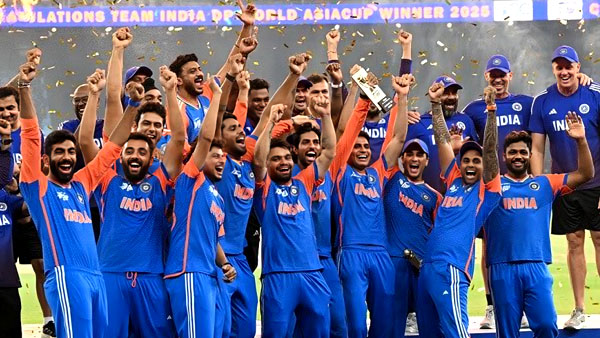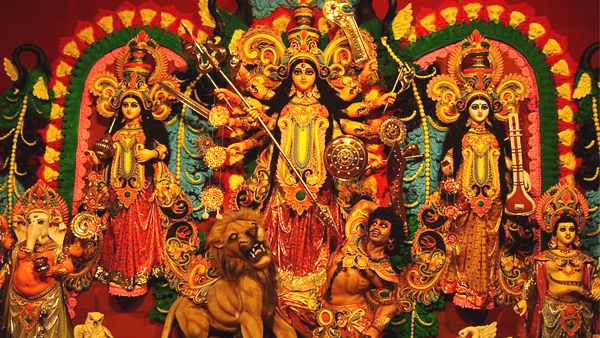India’s Asia Cup Win and the Politics of Denial
By Dipak Kurmi
On September 28, 2025, Asia witnessed a cricketing contest that, for once, seemed to rise above the hype of politics, history, and bitter rivalries—until it didn’t. In front of a charged stadium and millions of glued viewers, India and Pakistan produced an Asia Cup T20 final worthy of its billing, a high-octane clash that swung like a pendulum before Tilak Varma’s composure and Kuldeep Yadav’s guile sealed a famous five-wicket win for India. Yet, what should have ended with confetti, a raised trophy, and shared memories instead dissolved into farce and frostiness. For the first time in the tournament’s history, the champions walked away without a trophy in hand, denied their moment of glory because of political undertones and administrative brinkmanship.
The cricket itself was riveting. Put in to bat by Suryakumar Yadav, Pakistan launched into the innings with fury. Sahibzada Farhan and Fakhar Zaman piled up an 84-run stand in no time, surging to 113/1 and threatening to touch 180-plus. Indian seamers looked rattled, and the balance tilted heavily toward the men in green. Then came the storm within the calm. On a grippy surface, India’s spinners spun webs of restraint and deceit. Kuldeep Yadav, all flight and dip, orchestrated the collapse with stunning figures of 4/30. Varun Chakravarthy suffocated the middle overs with his mystery deliveries, returning 2/30. Axar Patel joined the feast with 2/26, while Jasprit Bumrah book-ended the meltdown with searing yorkers, his “fighter jet” celebration echoing across the stadium. From a position of dominance, Pakistan lost nine wickets for just 33 runs, bowled out for a modest 146 in 19.1 overs. The unraveling was so dramatic that former captain Waqar Younis, visibly agitated in the commentary box, lashed out at his side’s “brainless cricket.”
But if Pakistan had failed with the bat, they refused to let the chase be easy. India endured its worst powerplay of the tournament. Faheem Ashraf dismissed the prolific Abhishek Sharma for just 5, Shaheen Afridi induced a sharp catch at mid-off to remove Suryakumar Yadav for 1, and Faheem returned to send Shubman Gill back cheaply. At 20/3 inside four overs, India stared at a familiar script of heartbreak in high-pressure contests. Pakistan’s pacers roared, the crowd bayed, and the tension was suffocating.
It was here that Tilak Varma emerged not merely as a batsman, but as the story of the night. Unruffled by the chaos around him, he steadied the innings with Sanju Samson and then took command alongside Shivam Dube. Tilak’s unbeaten 69 off 53 balls was not the kind of innings statisticians often celebrate, but it was the defining act of composure, intelligence, and timing. His fifty came off 41 deliveries, blending clean hitting with careful strike rotation. He broke a boundary drought with a towering six, threaded crisp drives through the field, and resisted the temptation of reckless shots even as the asking rate ticked beyond ten an over.
Shivam Dube’s 33 off 22 balls added firepower to the finesse. The two stitched together a 60-run partnership for the fifth wicket that broke Pakistan’s spirit. A six off Haris Rauf, a threaded boundary off Faheem Ashraf, and suddenly the momentum shifted. Sanju Samson’s cameo of 24 had already softened the chase, and Rinku Singh’s finishing blow—an audacious loft over mid-on—brought the winning runs with two balls to spare. As Tilak raised his arms in relief and triumph, India clinched its second Asia Cup in the T20 format, and a record-extending ninth overall. More importantly, they had beaten Pakistan three times in the same tournament: once in the group stage, once in the Super 4s, and now in the final.
It should have been the perfect moment of celebration, an occasion to lift the glittering trophy that symbolized supremacy in Asian cricket. But instead, the night spiraled into an unprecedented controversy.
The seeds of discord had been sown earlier in the tournament, when India, in line with government advice, had refused to shake hands with Pakistani players after their group-stage encounter. While India explained it as a political decision, Pakistan took umbrage, interpreting it as disrespect not just toward their team but toward the spirit of the game. By the time the final arrived, the tension off the field matched the tension on it.
Once India sealed the win, the atmosphere turned surreal. The game ended at 10:30 p.m., yet the presentation ceremony did not begin for more than 75 minutes. When it did, Pakistan’s players were awarded their runner-up medals, individual prizes were distributed, and Abhishek Sharma was announced as Player of the Tournament. But before the trophy could be brought out, Asian Cricket Council (ACC) officials abruptly left the stage. The glittering silverware had already disappeared from the outfield.
The reason was political as much as procedural. India had reportedly informed the ACC that they would not accept the trophy from Mohsin Naqvi, the ACC chairman who also heads the Pakistan Cricket Board and serves as the country’s Interior Minister. The refusal was firm, and Naqvi, unwilling to be sidelined, decided to deny India the trophy altogether. What followed was as bizarre as it was historic: a champion team left without the cup they had rightfully won.
In the dressing room, the mood was both jubilant and bemused. The players posed with an imaginary trophy, raising their hands in mock celebration for photographs. “This is one thing I have never seen since I started playing and following cricket—that a champion team is denied a trophy,” skipper Suryakumar Yadav told reporters in the early hours of Monday. “It was a hard-earned trophy. We deserved it. I can’t say anything more. If you ask me about trophies, my trophies are sitting in the dressing room—all the 14 players and the support staff. I am taking back lovely memories and moments with these guys. That’s all.”
For Pakistan, the issue was equally emotive, but their blame was directed at India. Captain Salman Agha, visibly frustrated, accused the Indian team of disrespecting the spirit of cricket. “They’re not disrespecting us by not shaking hands; they’re disrespecting cricket. Good teams don’t do what they did today,” Agha said. He suggested that Suryakumar personally had no issue with handshakes, pointing to their private greetings earlier in the tournament. “I’m sure he’s following instructions, but if it was up to him, he’d shake hands with me,” Agha added.
Yet Pakistan’s moral high ground was undercut by their own actions earlier in the tournament, when they threatened to pull out of a group-stage game against the United Arab Emirates, delaying proceedings and sparking criticism of gamesmanship. The Asia Cup, instead of being remembered solely for cricketing excellence, was increasingly becoming a theater of political shadowboxing.
The final thus symbolized more than just India’s victory or Pakistan’s collapse; it was a microcosm of the strained relationship between the two nations. Suryakumar dedicated his match fees to the Indian armed forces, while Agha announced that Pakistan’s players would donate theirs to civilians killed in Indian airstrikes following the Pahalgam terror attack. Cricket, once hailed as a bridge between the two countries, had become another battleground for competing national narratives.
From a purely sporting perspective, India’s triumph underlined their depth and resilience. Without Hardik Pandya, they had less room for error, yet the bowlers showed collective discipline, and Tilak Varma’s maturity stood out as a defining feature. This victory was not merely about lifting a trophy—it was about demonstrating composure under pressure, a quality that Pakistan sorely lacked as they squandered a golden platform with the bat.
From a political standpoint, however, the night was about denial—denial of handshakes, denial of symbolic gestures, denial of a trophy. India owned the crunch moments on the field, Pakistan blinked, but off the field, both sides dug trenches that left the game poorer for its politics. The sight of a champion team celebrating with an imaginary cup, mocked by the absence of silverware, will endure as a lasting image of the 2025 Asia Cup: a tournament where cricket soared, but diplomacy sank.
As the dust settles, the questions linger. Should the ACC have allowed politics to deprive players of their rightful glory? Should teams allow national instructions to overshadow sporting traditions? And most importantly, will India and Pakistan ever find a way to let cricket be just cricket again?
For now, the record books will say India won their ninth Asia Cup title, beating Pakistan by five wickets in a gripping final. But history will also remember that they were champions without a trophy, victors without spoils, and that the night of their triumph was hijacked not by the contest, but by the cold arithmetic of politics.
(the writer can be reached at dipakkurmiglpltd@gmail.com)




